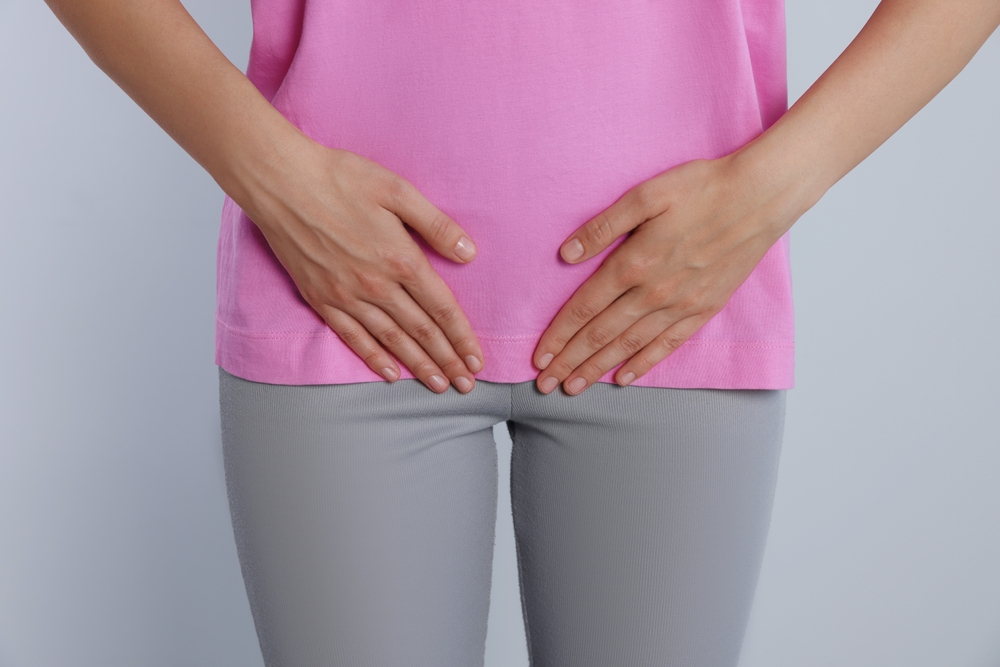Most at times weight loss isn’t the smooth, steady journey most people expect. Instead, your body goes through distinct stages as it adapts to your new lifestyle, each with its own challenges and victories. Understanding these phases is important, because what works in week one might not work in month three.
The good news? Once you know what to expect at each stage, you can adjust your approach and avoid the frustration that causes many people to give up. In this guide, we’ll walk you through the three key phases of weight loss and share practical strategies to optimise your results along the way.
What Are the 3 Stages of Weight Loss?
Losing weight is a journey involving several distinct phases. Let’s explore the three key stages of noticing weight loss and how they impact overall well-being:
Stage 1: Initial Rapid Weight Loss
Within the first week or two of starting a diet and exercise program to create a calorie deficit, many people experience rapid weight loss.1 This stage is often characterised by:
- Glycogen depletion: When you start consuming fewer calories than your body burns, it first turns to its readily available energy source: stored carbohydrates (glycogen), leading to further weight reduction.2,3
- Water weight loss: Glycogen is composed partially of water. Therefore, when glycogen is used or burned for energy, it releases water, leading to a type of weight loss that is predominantly water.2,3
- Metabolic rate changes: Your metabolism may slightly increase as your body adjusts to the new regimen.2,3
Optimisation Tips for Stage 1:
- Stay hydrated: Staying hydrated might stimulate your body’s metabolism and energy expenditure, ultimately helping with weight management.10
- Be patient: Celebrate your small wins, but remember that initial weight loss may be rapid at this point and will eventually slow down.
Stage 2: Slower, Steady Weight Loss (The Fat Loss Phase)
Once glycogen stores are depleted, your body starts breaking down stored fat for energy, leading to a gradual but consistent decrease in body fat percentage.This stage is marked by:
- Fat burning process: Your body taps into its fat reserves (adipose tissue) to fuel its activities.2,3
- Energy conversion: Fat is broken down into fatty acids and glycerol, which are used for energy production.2,3
- Plateau phase: Reaching a plateau is common in weight loss. This might occur when your body tries to adapt to your current routine and calorie intake, reducing energy expenditure. Also, hormones that regulate appetite and metabolism may shift, making you feel hungrier.2,3
Optimisation Tips for Stage 2:
- Calorie deficit: Stick to following a sustainable calorie deficit and balanced nutrition to support consistent fat burning. In case of a plateau, adjust your calorie intake based on your progress and activity level.1
- Vary strength training and cardiovascular exercise: Continue incorporating strength training exercises to build muscle and boost your metabolism. Also, engage in regular cardio to burn calories and improve cardiovascular health.4
- Set realistic goals: During this phase, it’s advisable to target a weight loss rate of approximately 0.23 to 0.9 kilograms per week, depending on your starting body size.7
No restrictive calories or diets: Regarding diets, it might be more beneficial to consider what healthy options you could incorporate into your meals as part of a balanced diet, rather than focusing too much on what you might have to remove.
Stage 3: Maintenance Phase
This phase begins once you’ve reached your target weight. The primary goal here is to maintain your hard-earned weight loss and prevent weight regain. This requires ongoing commitment and lifestyle adjustments. Characteristics of this stage often include:
- Sustained healthy habits: Regular exercise and a balanced diet become ingrained in your routine.
- Metabolic equilibrium: Your body reaches a new balance where calorie intake matches calorie expenditure.
- Potential challenges: Old habits may try to creep back in, and social pressures or life changes can make it challenging to stay on track.
Optimisation Tips for Stage 3:
- Mindful eating: Pay attention to your hunger and fullness cues. Avoid emotional eating and distractions while eating.
- Regular exercising: Continue making physical activity an integral part of your routine. Aim for at least 150 minutes of moderate-intensity or 75 minutes of vigorous-intensity aerobic activity per week, spread throughout the week.4
- Support system building: Joining forces with those who share your objectives can hold you accountable, motivate you, and enhance your emotional and social connections.
- Flexibility and adjustments: Be prepared to adjust your diet and exercise routine as needed to maintain your weight in the long term. Life changes and occasional indulgences happen, so be flexible and get back on track promptly.
- Consistent monitoring: Regularly track your weight and body composition to identify any early signs of weight regain.
Important note: These stages aren’t always linear, and individual experiences vary. Genetics, age, activity level, and health conditions can affect your weight loss journey.9 Consider scheduling regular check-ins with your healthcare professional or dietitian to monitor your progress and receive support.
What Are the First Signs of Losing Weight?
It’s tempting to hop on the scale every day when you’re trying to lose weight. But constantly checking those numbers can be a rollercoaster ride of emotions. The good news is that your body offers plenty of clues that you’re on the right track long before the scale shows a major shift.
Forget the scale for a start and tune into these subtle (and not-so-subtle) signs of progress:6
- Clothes fitting differently: That favourite pair of jeans feeling a bit looser? Or maybe your belt needs an extra notch? These are fantastic indicators that your body composition is changing, even if the scale hasn’t budged much yet.
- Increased energy levels: Feeling more energised and less sluggish throughout the day? Weight loss often leads to improved stamina and vitality. You might find yourself tackling workouts with more enthusiasm or simply feeling more motivated to move your body.
- Improved sleep quality: Are you sleeping more soundly and waking up feeling refreshed? Weight loss can significantly impact sleep quality by reducing sleep apnea and other sleep disorders.
- Reduced bloating: Notice less puffiness in your face and abdomen? Healthier eating habits and increased physical activity can improve digestion and reduce water retention, leading to a less bloated feeling.
- Enhanced mood: Feeling happier and more confident? Weight loss can have a positive impact on your mental well-being. Exercise releases endorphins, which have mood-boosting effects, and achieving your health goals can boost self-esteem.
- Increased thirst: Finding yourself reaching for your water bottle more often? This is a good sign! Fat breakdown produces byproducts that your body needs to flush out, increasing your need for hydration.
Remember, the scale is just one measure of progress. Pay attention to these non-scale victories – they’re powerful indicators that your healthy lifestyle changes are making a difference! Celebrate these wins and stay motivated on your journey to a healthier you.
Is Weight Loss = Fat Loss?
We often use the terms “weight loss” and “fat loss” interchangeably, but they’re not always the same thing. While the ultimate goal is usually to lose fat, the weight value number on your scale can be influenced by various factors, making it a less reliable indicator of true fat loss.
Here’s why:9
When you step on the scale, it shows your total body weight, which includes:
- Fat: This is what we typically aim to reduce when we’re trying to lose weight.
- Muscle: Lean muscle mass is crucial for a healthy metabolism and overall fitness.
- Water: Water weight fluctuates significantly and can be influenced by factors like hydration, sodium intake, and hormones.
- Glycogen: This is the stored form of carbohydrates in your muscles and liver.
- Bone: Bone density contributes to your overall weight.
Hence, focusing solely on the body weight values on your scale can be misleading. Tracking body measurements, body fat percentage, or how your clothes fit can provide a more accurate picture of fat loss progress.9 Prioritising fat loss over just weight loss encourages sustainable lifestyle changes that support long-term health and well-being.
Wrapping it Up!
Understanding the three stages of weight loss can significantly empower you to navigate your journey effectively. Remember to celebrate your progress, stay consistent with your efforts, and seek professional guidance to help you embrace a health-first approach to weight management.
Get personalised support from qualified telehealth professionals and build a sustainable plan. Book an online visit today and start your journey to better well-being.
Frequently Asked Questions on Stages of Losing Weight
Where do we lose fat first?
Unfortunately, there’s no one-size-fits-all answer to this question. Where you lose fat first is largely determined by genetics and individual factors. Some people may notice changes in their face or upper body first, while others may lose fat from their hips or thighs initially.8
How much weight can I lose in a week?
A safe and sustainable rate of weight loss is generally considered to be 0.23 to 0.9 kilograms per week. However, keep in mind that weight loss is not always linear. You might experience weeks with more significant losses and weeks with little to no change.7
What is the hardest stage of weight loss?
Many people might find the plateau phase to be the most challenging. This is when progress slows down, and it can be frustrating to maintain motivation. However, with adjustments to your diet and exercise routine, and a focus on consistency, you can overcome plateaus and continue your weight loss journey.1,2
In what order do you start losing weight?
While fat loss patterns vary, you’ll typically lose water weight first (Stage 1), followed by fat loss (Stage 2). Remember that the scale might not always reflect these changes accurately, so pay attention to other signs of progress, like how your clothes fit and your energy levels.1
Your total
weight loss program
- Trusted medical experts
- Ongoing patient support
- Exclusive weight management resources
References
- Sarwan G, Rehman A. Management Of Weight Loss Plateau. PubMed. Published 2022. https://www.ncbi.nlm.nih.gov/books/NBK576400/
- Mayo Clinic Staff. Weight loss stalled? Move past the plateau. Mayo Clinic. Published 2018. https://www.mayoclinic.org/healthy-lifestyle/weight-loss/in-depth/weight-loss-plateau/art-20044615
- Murray B, Rosenbloom C. Fundamentals of glycogen metabolism for coaches and athletes. Nutrition Reviews. 2018;76(4):243-259. doi:https://doi.org/10.1093/nutrit/nuy001
- Cardio plus strength training lowers cardiovascular disease risk profile in overweight or obese individuals. NHLBI, NIH. Published January 31, 2024. https://internet-prod.nhlbi.nih.gov/news/2024/cardio-plus-strength-training-lowers-cardiovascular-disease-risk-profile-overweight-or
- Davoodi SH, Ajami M, Ayatollahi SA, Dowlatshahi K, Javedan G, Pazoki-Toroudi HR. Calorie shifting diet versus calorie restriction diet: a comparative clinical trial study. International Journal of Preventive Medicine. 2014;5(4):447-456. https://pubmed.ncbi.nlm.nih.gov/24829732/
- MAYO CLINIC. Exercise: 7 benefits of regular physical activity. Mayo Clinic. Published August 26, 2023. https://www.mayoclinic.org/healthy-lifestyle/fitness/in-depth/exercise/art-20048389
- Maintaining Weight Loss. www.hopkinsmedicine.org. https://www.hopkinsmedicine.org/health/wellness-and-prevention/maintaining-weight-loss
- National Heart, Lung, and Blood Institute. Overweight and obesity – causes and risk factors | NHLBI, NIH. www.nhlbi.nih.gov. Published March 24, 2022. https://www.nhlbi.nih.gov/health/overweight-and-obesity/causes
- Callahan EA. The science, strengths, and limitations of body mass index. www.ncbi.nlm.nih.gov. Published July 31, 2023. https://www.ncbi.nlm.nih.gov/books/NBK594362/
- Johns Hopkins University. Yes, drinking more water may help you lose weight. The Hub. Published January 15, 2020. https://hub.jhu.edu/at-work/2020/01/15/focus-on-wellness-drinking-more-water/





